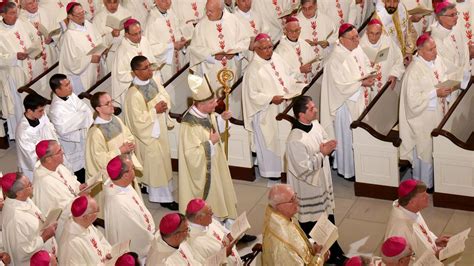There were two significant events in the life of the Catholic Church this past month. On June 18 Pope Francis released his second encyclical, Laudato si’, and on June 26 the U.S. Supreme Court legalized gay “marriage” with their Obergefell v. Hodges decision.
The United States Conference of Catholic Bishops responded very differently to these events. The USCCB officially replied with a statement by Archbishop Joseph E. Kurtz of Louisville, Kentucky, president of the U.S. Conference of Catholic Bishops (USCCB). Archbishop Kurtz compared the marriage decision to the 1973 Roe v. Wade decision:
“Regardless of what a narrow majority of the Supreme Court may declare at this moment in history, the nature of the human person and marriage remains unchanged and unchangeable. Just as Roe v. Wade did not settle the question of abortion over forty years ago, Obergefell v. Hodges does not settle the question of marriage today. Neither decision is rooted in the truth and, as a result, both will eventually fail. Today the Court is wrong again. It is profoundly immoral and unjust for the government to declare that two people of the same sex can constitute a marriage.”
It’s a strong statement, but the news coverage was minimal, picking up only on the phrase “tragic flaw,” not the meatier argument made by the Archbishop about the question marriage remaining unsettled.
Searching elsewhere on the USCCB website for responses to gay “marriage” will turn up a page on Same Sex Unions with dozens of attachments, but it offers no program or strategy for clergy and laity to respond to legalization of gay “marriage”.
However, a full-blown program is precisely what the USCCB has provided in support of the Pope’s encyclical. The Catholic bishops have created an Environment/Environmental Justice Program as a program of the Department of Justice, Peace & Human Development at the USSCB. The program “educates and motivates Catholics to a deeper reverence and respect for God’s creation and encourages Catholics to address environmental problems, especially as they affect poor and vulnerable people.”
On the website for the Environment/Environmental Justice Program — I don’t understand the odd title — can be found links to the encyclical itself; a “home discussion guide …. [to] “help small groups explore and dialogue with this important document; a bulletin insert; a prayer “to Care for Our Common Home“; a Capitol Hill Briefing on the encyclical; “Quotes from Church Teaching on Ecology“; and “Resources for Liturgy, Preaching, and Taking Action.”
This is offered by the program to “encourage efforts to bring about discussion on issues affecting the environment (climate change, consumption, pollution, stewardship of the land) that is civil and constructive. . . . ”
There is also link to something called the Catholic Climate Covenant, which appears to be the activist arm of the USCCB on this issue. The “About” section of the Catholic Climate Covenant reports these achievements:
Raising Catholic values on climate change through 54 news stories in the Guardian, the Atlantic, Fox News, and EWTN News Nightly, among other outlets.
Building a network of Catholics making the moral case for limits on carbon. Our network published 52 op-eds and letters to the editor.
Hosting campus and community events with 2,650 attendees.
Registering 700+ volunteer leaders to host Feast of St. Francis events.
Sending 1,235 letters to lawmakers on our members’ behalf in support of national limits on carbon..
Participating in the Vatican’s Sustainable Humanity, Sustainable Nature: Our Responsibility conference.
Creating the first-ever solar parish partnership.
I’ll leave it to the reader to decide whether or not these achievements, and the supporting numbers, are impressive. But when you click on the “Partners” link and realize the huge size of the Catholic network involved with the Catholic Climate Covenant, then 54 news stories and 1,235 letters to Congress seems rather meager.
Although this environment/environmental program is not the scale of the USCCB’s program, Justice for Immigrants, it suggests a great deal of time and money was spent long before the release of the encyclical. (What happened to us not knowing exactly what would be in the encyclical?)
However, what might be missing from the USCCB’s effort through the Catholic Climate Covenant may have been made up by the Catholic Campaign for Human Development. The CCHD has spent 2.5 million dollars since 2013 “in community organizations to support environmental justice.”
In fact, the CCHD spells it out in detail: “52 grants were awarded to 38 groups in 22 states to support grassroots campaigns, capacity building, education for workers, economic empowerment, and advocacy.” I’m not sure how the efforts being described “capacity building” and “economic empowerment” illustrates how the CCHD “cares for God’s creation” but I’m sure there is a reasonable explanation.
The reason for throwing some light on the USCCB’s effort to educate Catholics about environmental matters is to express the hope that a similar program is being created in response to the legalization of gay “marriage”.
Media coverage of the Court’s decision, combined with the propaganda of the gay lobby, will have a deep influence on attitudes towards marriage in our nation. There should be, in my opinion, an aggressive and comprehensive program led by the bishops to educate Catholics and other Americans of goodwill about the true meaning of marriage.
If Archbishop Kurtz is right, and I think he is, the SCOTUS decision has begun a decades-long battle over the meaning of marriage. If the Catholic Church is going to make a difference in this battle, the USCCB will need to allocate significant resources to planning and implementing a “saving marriage” program.
A faithful laity, shaken by the Obergefell v. Hodges decision, await their bishops leadership, just as they did in 1973 when the Supreme Court overturned all laws restricting abortion.
